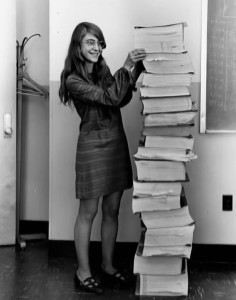Our space technology and Alexander Gerst delivers amazing views of our planet.
Thank you Alexander for your artistry in creating this incredible experience through your wonderful composition of 12,500 images.
Monthly Archives: December 2014
World Wide Web Inventor: “It’s time to recognize the Internet as a basic human right.”
Manish Sain
New Delhi, December 11, 2014

With internet censorship and government surveillance on the rise, WWW inventor Tim Berners-Lee has said that it is time to recognize access to the web as a basic human right.
While releasing the Web Index annual report in London, Berners-Lee said, “It’s time to recognize the Internet as a basic human right. That means guaranteeing affordable access for all, ensuring internet packets are delivered without commercial or political discrimination, and protecting the privacy and freedom of Web users regardless of where they live.”
The Web Index, which measures the state of World Wide Web in 86 countries, is prepared by the World Wide Web Foundation, an organization founded by Berners-Lee in 2009.
The data revealed in the report suggests more countries are trying to control the internet and putting in place measures to monitor web users. According to the report moderate or extensive web censorship has been seen in 38 percent of countries this year, which marks an increase considering in 2013 this figure was 32 percent.

The Index ranks countries on the basis of how they are using the Internet. The countries that top the list are gaining most social and economic benefit from the web while the countries with poorer ranks are either misusing or not gaining by the use of it.
The list is topped by Scandinavian countries. Denmark with 100 points is at the top. Ethiopia, on the other hand, with zero points is at the bottom of the list.
India, is somewhere in the middle, although it scores lower than the global average of 46.30.
According to the report, India scores 44.06 points for universal access to the web, 57.42 for freedom and openness of internet and 40.41 for social and economic empowerment. With a total of 44.60 points, India is ranked 48 in the Web Index.
The neighboring countries Pakistan and Bangladesh lag behind with a global ranking of 76 and 63, respectively.
The Foundation calls for more uniformity in how people across the world use the web. “The richer and better educated people are, the more benefit they are gaining from the digital revolution. This trend can and must be reversed,” said Anne Jellema, CEO of the World Wide Web Foundation, and the lead author of the report. “Extreme disparities between rich and poor have been rightly identified as the defining challenge of our age, and we need to use technology to fight inequality, not increase it.”
The report also highlights the lack of legal protection that the majority of people across the world have against web surveillance. “Laws preventing bulk mass surveillance are weak or non-existent in over 84 per cent of countries, up from 63 per cent in 2013,” notes the report.
Berners-Lee says that he believes the web can be a force for good. “In an increasingly unequal world, the web can be a great leveler – but only if we hardwire the rights to privacy, freedom of expression, affordable access and net neutrality into the rules of the game,” he concluded.
Original Source: http://indiatoday.intoday.in/technology/story/internet-should-be-a-human-right-says-web-inventor-tim-berners-lee/1/406426.html
Margaret Hamilton, lead software engineer, Project Apollo

Margaret Hamilton was the lead software engineer for Project Apollo.
It had long been tradition that operating calculating machines was “women’s work”; it was thought to be just keypunching, like typing. Women programmed and operated the punchcard machines to produce calculations for the Manhattan Project. Despite the tendency of the project physicists to minimize their contribution, this was demanding work, much more than just moving cards from slot to slot — they were usually given requirements from the tech people, but often designed the approach and set up the calculations themselves.
The bias that “women do the mere programming” extended into the early days of the computer, and it meant that many of the earliest and most pioneering programmers were women, learning hands-on to do things that had never been done before. We all know about Amazing Grace Hopper, who wrote the first compiler.
Margaret Hamilton earned her BA in math from Earlham College, but obviously learned about programming on the job—there was no other way. In the photo above, she is standing in front of the printouts of the code for the Apollo guidance system, a lot of which she wrote and which she oversaw.
She was all of 31 when the Apollo 11 lunar module landed on the moon, running her code. (Apollo 11 was able to land at all only because she designed the software robustly enough to handle buffer overflows and cycle-stealing.)
She’s now a tech CEO and won the ‘86 Lovelace Award and the NASA Exceptional Space Act Award.
The engineers weren’t all boys with crew-cuts, short sleeve oxford shirts, and narrow black ties.
Original Source: https://medium.com/@3fingeredfox/margaret-hamilton-lead-software-engineer-project-apollo-158754170da8
Mistakes?
Do not fear mistakes. There are none.
Miles Davis
Perfect

There was an artist in the city of Kouroo who was disposed to strive after perfection. One day it came into his mind to make a staff. Having considered that in an imperfect work, time is an ingredient, but into a perfect work, time does not enter, he said to himself: It shall be perfect in all respects, though I should do nothing else in my life.
Henry David Thoreau
——————————————————–
Frank carries a staff with him on some of his walks. It was hardly crafted at all from a fallen branch in our forest sanctuary, being perfect in its natural form. It becomes more perfect all the time as Frank adds a natural patina from his handling of this tree, often admired by others he encounters on his walks.
We are perfect, and getting better all the time.